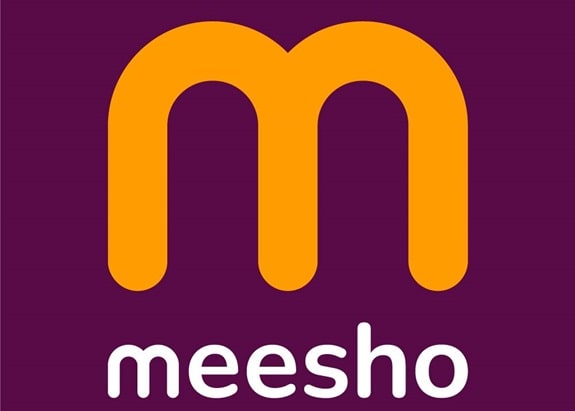Meesho is one of India’s leading social commerce platforms, established in 2015, with the primary goal of empowering small businesses and individual entrepreneurs, particularly in tier 2 and tier 3 cities. The platform enables users to resell products via social media channels such as WhatsApp and Facebook, making it accessible to a broader demographic. As of 2024, Meesho has revolutionized the e-commerce landscape, especially for resellers, offering a low-cost entry into the digital marketplace.
Current Overview of Meesho Company
In 2024, Meesho has grown into a significant player in India’s e-commerce sector, serving over 14 crore customers. The platform has facilitated small businesses by providing access to millions of potential buyers without requiring a significant investment from the sellers. The company’s emphasis on social commerce allows it to reach underserved markets where traditional e-commerce giants like Amazon and Flipkart have limited penetration.

With its “zero-commission” model, Meesho has attracted a vast number of sellers, primarily homemakers, small entrepreneurs, and resellers who leverage social media to grow their businesses. Meesho’s recent funding rounds have led to a valuation exceeding $4.9 billion, and the company is now eyeing profitability as it scales its operations across India.
Strengths
1. Low Entry Barrier for Entrepreneurs: Meesho’s business model is built on enabling individuals to start online businesses with minimal investment, making it accessible for homemakers and small business owners across India. This focus on inclusivity and empowerment has made it a favorite among users in semi-urban and rural areas.
2. Extensive Reach in Tier 2 and Tier 3 Cities: Meesho has established itself in over 5,000 cities, covering a broad geographic area. Its strong presence in smaller cities allows it to capture a market often overlooked by traditional e-commerce platforms.
3. Diverse Product Catalog: Meesho offers a wide range of products, including fashion, home decor, electronics, and cosmetics. This variety ensures that resellers can cater to different consumer needs, increasing the platform’s appeal to a broad customer base.
4. Strong Customer Loyalty: Meesho boasts an impressive customer retention rate, with 85% of its orders coming from returning customers, demonstrating strong customer satisfaction and loyalty.
Weaknesses
1. Quality Control Issues: Many of the products sold on Meesho are from unbranded suppliers, which can lead to inconsistent quality. This has led to customer dissatisfaction and may hurt the brand’s reputation if not managed effectively.
2. Dependence on Indian Market: Meesho’s operations are highly concentrated in India, making it vulnerable to economic fluctuations and regulatory changes in the local market. The company’s lack of international diversification limits its growth potential outside India.
3. Logistical Challenges: Meesho’s logistics, particularly in rural areas, can face delays in product delivery, causing cancellations and customer complaints. Additionally, issues such as inefficient product pickup from resellers can lead to operational inefficiencies.
Opportunities
1. Digital Expansion and AR Integration: As online shopping continues to grow in India, Meesho has the opportunity to enhance its digital presence by integrating augmented reality (AR) to allow users to visualize products before purchasing. This can reduce return rates and enhance customer satisfaction.
2. Expansion into New Product Lines: Meesho can diversify its product offerings by entering new categories such as groceries and personal care products, thereby attracting new customers and increasing its share of the e-commerce market.
3. Sustainable Growth and International Expansion: With its proven business model in India, Meesho has the opportunity to explore international markets, especially in developing economies with similar socio-economic conditions. Additionally, investing in sustainable practices can align the company with growing consumer demand for eco-friendly products.
4. Leveraging Data for Personalization: Meesho can capitalize on the data it collects from its users to offer personalized shopping experiences, which could improve user engagement and drive higher sales conversions.
Threats
1. Intense Competition from E-commerce Giants: Meesho faces stiff competition from well-established players like Amazon India and Flipkart, which dominate the market with larger product catalogs, faster delivery options, and better brand recognition.
2. Fraudulent Resellers: As Meesho grows, the risk of fraudulent activities increases. Fake or duplicate products can harm the platform’s credibility and discourage new customers from using it.
3. Changing Consumer Preferences: With the rapid evolution of consumer expectations and preferences, Meesho must constantly innovate to stay relevant. Failure to do so could result in losing market share to more agile competitors.
4. Regulatory and Compliance Risks: E-commerce platforms are increasingly subject to stricter regulations, particularly regarding consumer protection and data privacy. Non-compliance with these regulations could lead to fines or operational disruptions.
Future Plans
Meesho plans to continue expanding its user base by reaching deeper into rural India, enhancing its technological infrastructure, and improving logistics. The company is also exploring opportunities in augmented reality (AR) to improve customer experiences and streamline product returns. Additionally, Meesho is keen on improving its product quality and logistics, focusing on trust-building initiatives with both customers and resellers.
With its sights set on profitability, Meesho is optimizing costs and planning an IPO in the near future to raise more capital for growth and innovation. By enhancing its e-commerce platform with features like personalized shopping and better integration with social media, Meesho aims to solidify its position as India’s top social commerce platform.
Conclusion
Meesho’s unique business model, which empowers small entrepreneurs, particularly women in rural areas, has allowed it to grow rapidly and disrupt the Indian e-commerce market. However, the company must address its weaknesses, particularly in terms of product quality and logistics, while also mitigating threats from competition and fraud. With strategic investments in technology and customer engagement, Meesho has the potential to further expand its market reach and maintain its leadership in the social commerce space.